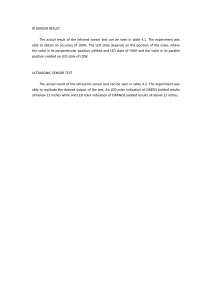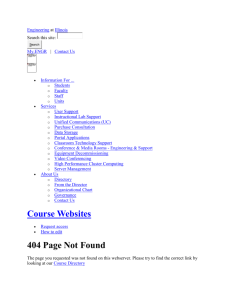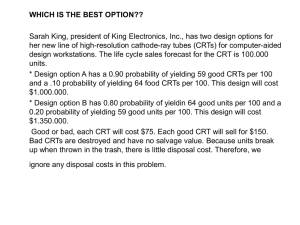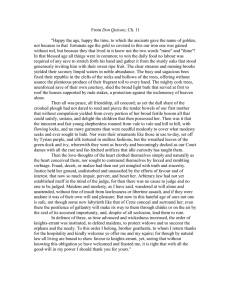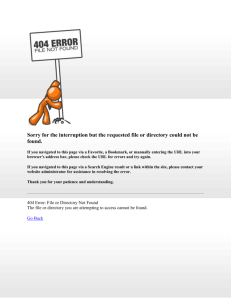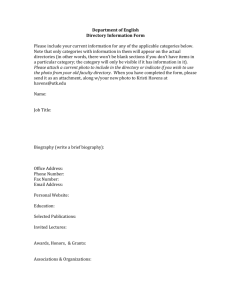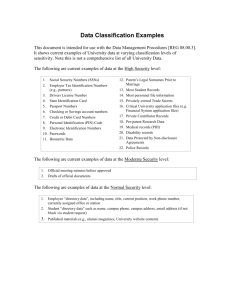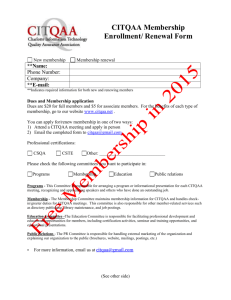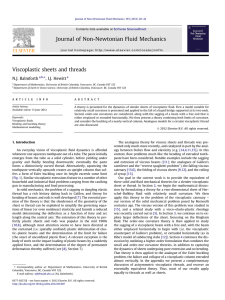Module I
advertisement
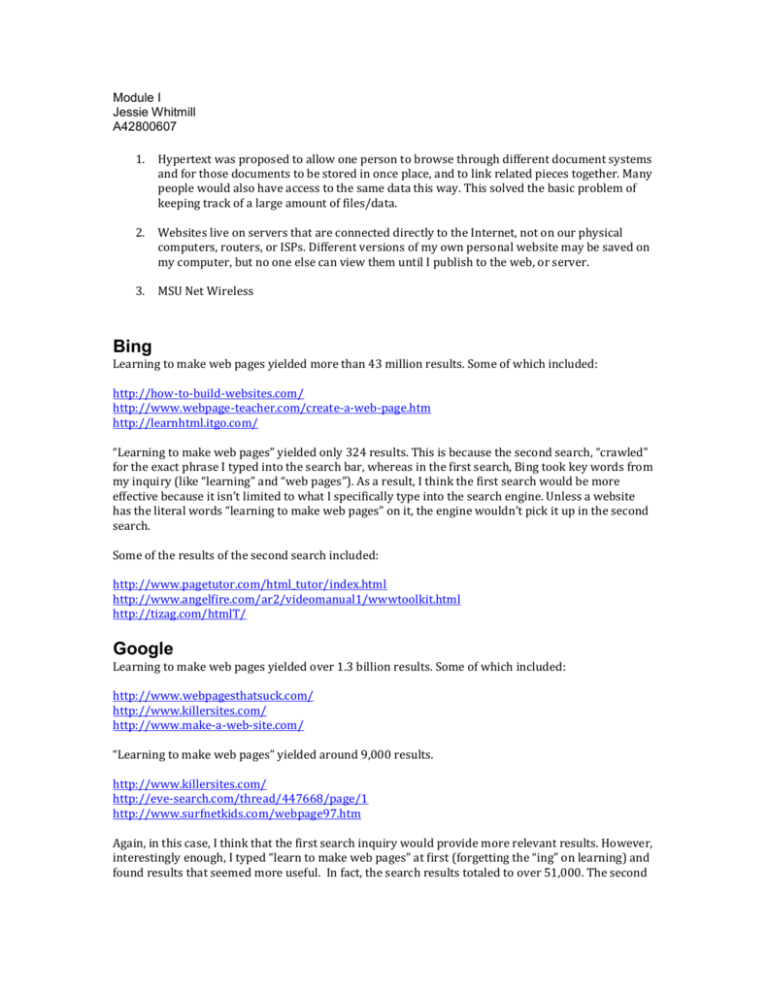
Module I Jessie Whitmill A42800607 1. Hypertext was proposed to allow one person to browse through different document systems and for those documents to be stored in once place, and to link related pieces together. Many people would also have access to the same data this way. This solved the basic problem of keeping track of a large amount of files/data. 2. Websites live on servers that are connected directly to the Internet, not on our physical computers, routers, or ISPs. Different versions of my own personal website may be saved on my computer, but no one else can view them until I publish to the web, or server. 3. MSU Net Wireless Bing Learning to make web pages yielded more than 43 million results. Some of which included: http://how-to-build-websites.com/ http://www.webpage-teacher.com/create-a-web-page.htm http://learnhtml.itgo.com/ “Learning to make web pages” yielded only 324 results. This is because the second search, “crawled” for the exact phrase I typed into the search bar, whereas in the first search, Bing took key words from my inquiry (like “learning” and “web pages”). As a result, I think the first search would be more effective because it isn’t limited to what I specifically type into the search engine. Unless a website has the literal words “learning to make web pages” on it, the engine wouldn’t pick it up in the second search. Some of the results of the second search included: http://www.pagetutor.com/html_tutor/index.html http://www.angelfire.com/ar2/videomanual1/wwwtoolkit.html http://tizag.com/htmlT/ Google Learning to make web pages yielded over 1.3 billion results. Some of which included: http://www.webpagesthatsuck.com/ http://www.killersites.com/ http://www.make-a-web-site.com/ “Learning to make web pages” yielded around 9,000 results. http://www.killersites.com/ http://eve-search.com/thread/447668/page/1 http://www.surfnetkids.com/webpage97.htm Again, in this case, I think that the first search inquiry would provide more relevant results. However, interestingly enough, I typed “learn to make web pages” at first (forgetting the “ing” on learning) and found results that seemed more useful. In fact, the search results totaled to over 51,000. The second search method is very touchy and with the correct wording could potentially yield more relevant results. The difference, then, between a directory and a search engine is that directories rely on humans for its listings and search engines rely on spiders, or robots. In order to be listed in a directory, one has to submit a short description to the directory for his/her site and the search looks only for matches in the submitted descriptions.
